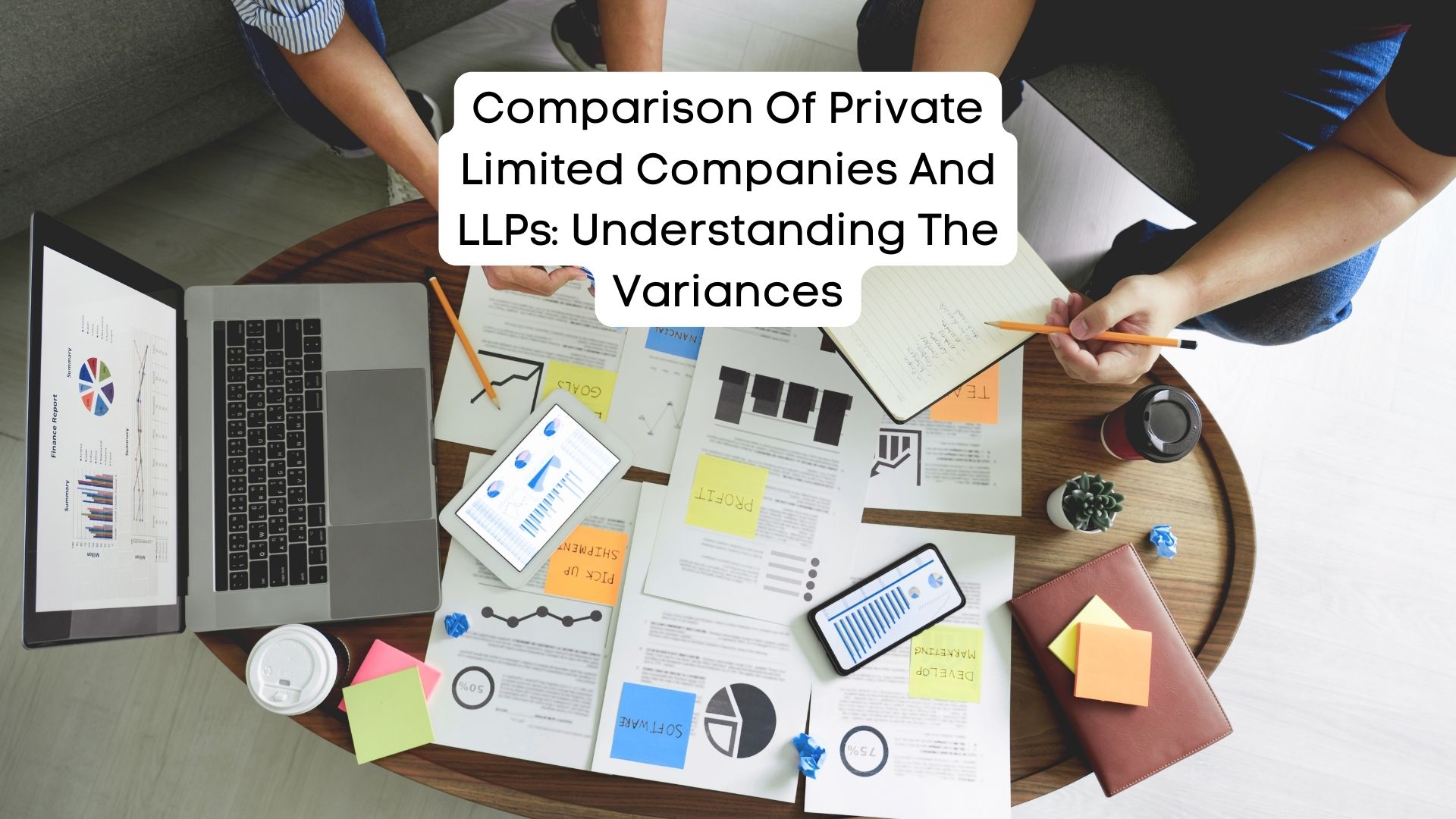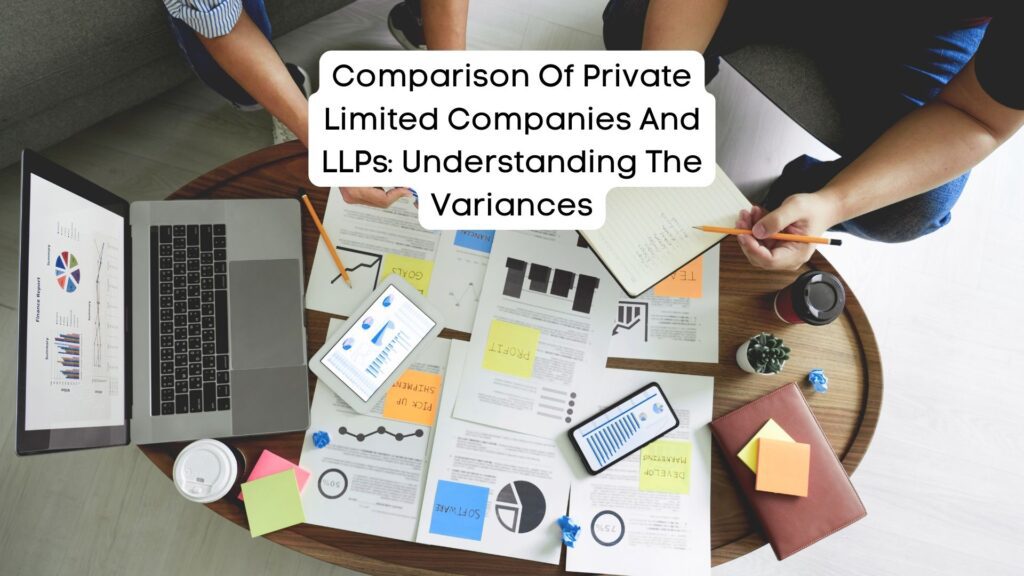
20 Feb Comparison of Private Limited Companies and LLPs: Understanding the Variances

When entrepreneurs embark on establishing a new business or contemplate altering its legal structure, they frequently weigh the merits of various business entities. Among the popular options are Private Limited Companies and Limited Liability Partnerships (LLPs), each offering unique advantages. Distinguishing between these entities is crucial for making well-informed decisions aligned with one’s business objectives and requirements. This article aims to provide a comprehensive overview and differentiation of Private Limited Companies versus LLPs, emphasizing their key characteristics.
Definition of a Private Limited Company:
A Private Limited Company is a business entity privately owned and governed by its shareholders. It provides limited liability protection to its owners and is commonly favored by small to medium-sized businesses.
Key Characteristics of a Private Limited Company:
- Ownership: Shareholders own and control a Private Limited Company through the ownership of shares. Ownership is determined by the number of shares held by each shareholder, and these shares are not publicly traded, typically held by a small group of individuals or entities.
- Separate Legal Entity: A Private Limited Company is a distinct legal entity from its shareholders, possessing its own legal existence. As such, the company can own property, enter contracts, litigate, and engage in business activities independently.
- Legal Compliance: Private Limited Companies are subject to legal compliance requirements, including registration with the appropriate governmental authority, maintaining accurate financial records, conducting annual audits, filing financial statements, and holding annual general meetings.
- Management: Day-to-day operations of a Private Limited Company are overseen by directors appointed by the shareholders. These directors are responsible for strategic decision-making, managing company affairs, and ensuring compliance with legal and regulatory standards.
- Capital Structure: Private Limited Companies can raise capital by issuing shares to investors, representing ownership in the company. These shares may have different classes or rights, such as voting rights and dividend preferences.
Definition of LLPs:
An LLP, or Limited Liability Partnership, is a legal business structure blending features of both partnerships and companies. It offers partners limited liability protection akin to shareholders of a company while enabling active involvement in business management and operations.
Key Characteristics of LLPs:
- Limited Liability: Partners in an LLP enjoy limited liability for the partnership's debts and obligations. They are not personally liable beyond their agreed contributions to the partnership, although personal liability may arise from negligent or wrongful acts.
- Separate Legal Entity: An LLP exists as a separate legal entity from its partners, possessing the capacity to own property, enter contracts, litigate, and conduct business activities in its name, with its obligations and liabilities distinct from partners' personal assets.
- Formation and Registration: Establishing an LLP involves registration with the relevant governmental authority, often the Registrar of Companies, along with the submission of an LLP agreement outlining partner rights, duties, and profit-sharing arrangements.
- Ownership and Management: LLPs are managed by partners, who can be individuals or corporate entities, and possess authority to participate in partnership management and decision-making as outlined in the LLP agreement.
- Taxation: LLPs are typically treated as pass-through entities for tax purposes, with profits taxed at the individual partner level rather than at the entity level.
- Compliance Requirements: LLPs generally face fewer compliance obligations compared to companies, requiring maintenance of proper accounts and filing an annual return with the Registrar of Companies, although audits may be necessary based on turnover or capital thresholds.
Takeaway:
Choosing between a Private Limited Company and an LLP is a pivotal decision influenced by factors such as business goals, ownership structure, liability considerations, taxation, and compliance requirements. While Private Limited Companies offer separate legal entity status and stringent compliance obligations, LLPs provide partnership flexibility and limited liability protection. A thorough understanding of the distinctions outlined in this article empowers entrepreneurs to make informed choices aligning with their business visions and safeguarding their interests.


No Comments